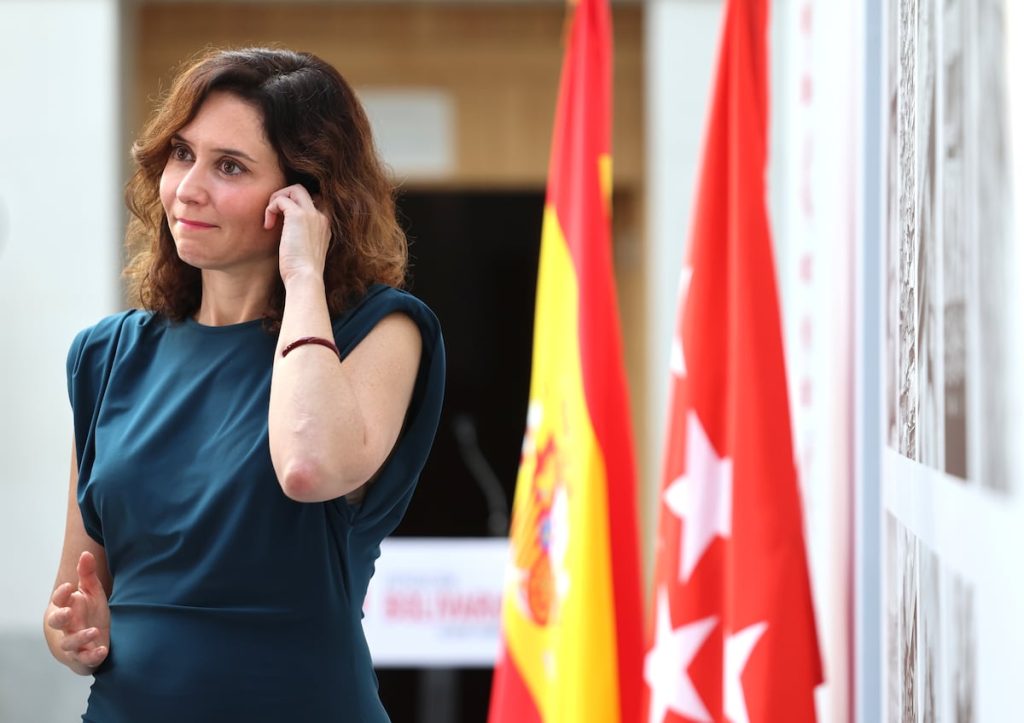Isabel Díaz Ayuso, the president of the Madrid region, has accused Spanish Prime Minister Pedro Sánchez of “blowing up” their scheduled meeting at La Moncloa this Friday by accusing her of benefiting from tax crimes. Ayuso justified her refusal to meet with Sánchez based on the government’s proposal to create a unique financing plan for Catalonia, which she criticized as a “huge windfall,” as well as two interventions by Sánchez. The first was last Wednesday, when the prime minister included her in a list of corruption cases within the Popular Party, despite never being charged or convicted: “Cover up a bit, because from the A for Ayuso to the Z for Zaplana, they have a corruption case for every letter of the alphabet,” he said. The second was on Thursday when Sánchez called for her resignation due to her partner Alberto González Amador being investigated for tax fraud, suggesting she may have indirectly benefited from his illicit gains.
Ayuso argued that Sánchez’s actions were unacceptable, highlighting her stability in government, majority support, and the passing of budgets compared to Sánchez’s lack of stability and multiple changes in his cabinet. She criticized the partners in the coalition government formed by PSOE and Unidas Podemos, including labeling Bildu as the armed wing of the ETA terrorist group, and defended her partner by stating that he only had a tax inspection with a fine, which he paid. Ayuso also claimed that her partner never came to Madrid to conduct business, and insinuated that Begoña Gómez, Sánchez’s wife, also benefitted from her husband’s position.
However, the tax inspection on González Amador allegedly revealed the commission of two tax fraud crimes totaling over 350,000 euros, which legally requires notifying the case to the public prosecutor’s office. The case is currently in court, with negotiations ongoing for a plea agreement that would likely involve the acknowledgment of guilt, payment of a fine with surcharges, and potentially avoiding jail time. Ayuso’s accusations and defense of her partner have caused friction between her and Sánchez, leading to the cancellation of their meeting at La Moncloa.
Ayuso’s confrontational relationship with Sánchez has been ongoing, with previous derogatory remarks directed towards the prime minister. She stands by her decision to cancel the meeting and continues to criticize Sánchez’s government and policies, emphasizing her own achievements and stability in contrast to what she perceives as chaos and inconsistency in Sánchez’s administration. The controversy surrounding the tax fraud investigation involving her partner and the implications of her alleged benefits from it have deepened the political rift between Ayuso and Sánchez, further complicating their already strained relationship.
As the political tensions between Ayuso and Sánchez escalate, their meeting at La Moncloa remains uncertain, with Ayuso standing firm on her decision not to engage with Sánchez until he retracts his accusations and clarifies his statements regarding her alleged involvement in tax crimes. The ongoing conflict between the two leaders reflects broader divisions within Spanish politics, with competing narratives and agendas driving a wedge between different regions and parties. The outcome of this dispute will likely have implications for the future of governance in Spain and the relationships between different levels of government.


